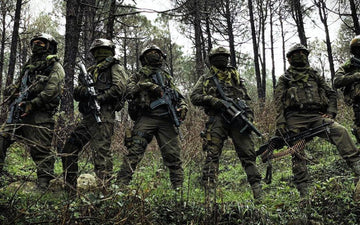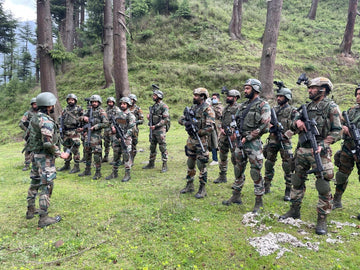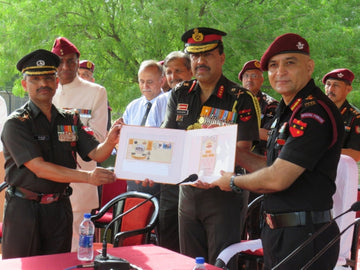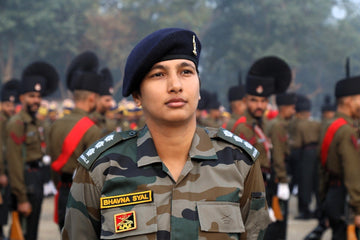The Services Selection Board (SSB) interview is a unique assessment process designed to evaluate the potential of candidates aspiring to join the Defence forces of India. It is an intricate procedure that assesses not only academic achievements but also critical qualities such as leadership, adaptability, communication skills, and mental resilience. The interview poses considerable challenges, leading to a success rate of merely 2-4% during early stages, with a total success rate ranging between 6% and 10%. This illustrates that merely possessing stellar academic qualifications is often insufficient for success in the SSB interview. As many candidates fall short of these standards, understanding the primary reasons behind their failings is crucial for prospective candidates hoping to navigate this demanding process.
Historical Context of the SSB Interview
The SSB interview, established in India soon after independence, was aimed at ensuring that only the most capable candidates were selected for the Indian Armed Forces. Over the years, this interview process has evolved from a simplistic assessment to a comprehensive evaluation framework that tests multiple dimensions of a candidate's personality and capabilities. Initially focused on academic performance and physical fitness, the SSB today employs a multifaceted approach, incorporating psychological tests, group discussions, and personal interviews.
As a result, the SSB has developed into a significant pillar of Defence recruitment, aligning with global standards while addressing the unique challenges faced by the Indian military. This evolution signifies the increasing recognition of soft skills in military leadership, marking a paradigm shift in recruitment methodologies.
Lack of Preparation and Confidence
The Importance of Preparation
A lack of thorough preparation is among the primary reasons candidates fail the SSB interview. Reports indicate that over 70% of applicants feel unprepared for the types of questions and scenarios presented to them during the interview process. This lack of readiness can significantly affect candidates' confidence levels. When candidates are not adequately prepared, they tend to manifest hesitation and a lack of self-assurance, particularly during group discussions and personal interviews.
Building Confidence Through Preparation
- Mock Interviews and Group Activities: Engaging in mock interviews and group discussions can facilitate better preparation. These simulations help candidates familiarize themselves with the setting and types of questions or scenarios they might encounter.
- Self-Assessment: Candidates should assess their strengths and weaknesses through self-evaluation techniques, focusing on areas such as communication skills, leadership attributes, and situational awareness.
- Knowledge of Current Affairs: A thorough understanding of current events is essential for engaging in meaningful discussions during the interview process. Candidates should stay informed about national and international news relevant to Defence and security.
Communication and Perception Skills
Effective communication skills are crucial during the SSB interview. Candidates must understand the importance of articulate and concise expression of their opinions, whether verbally or through written assessments. Two critical tests embody these skills: the Picture Perception and Discussion Test (PPDT) and Group Discussions (GD).
Picture Perception and Discussion Test (PPDT)
- Story Structure: Candidates frequently fail the PPDT due to poorly structured stories or a lack of coherence and relevance. An effective story needs a clear beginning, middle, and end, along with character development.
- Content Relevance: A story should be aligned with the displayed picture to show the candidate's ability to analyze and interpret visual information accurately.
Group Discussions (GD)
Participation Balance: It’s essential for candidates to engage in the discussion assertively yet respectfully. Common pitfalls include remaining passive or dominating the conversation.
Guidelines for Effective GD Participation:
- Speak at least 3-4 times during the session.
- Offer constructive, insightful contributions to the topic.
- Avoid aggressively interrupting other speakers.
Psychological Tests
Psychological tests in the SSB interview aim to unpack various facets of the candidate's personality and thought processes. Many candidates fail because they submit insincere or 'fake' responses; such discrepancies can be easily identified by trained assessors.
Authenticity is Key
Candidates need to provide genuine responses that reflect their true self. The psychological tests assess qualities like resilience, problem-solving skills, and emotional intelligence, crucial for a successful career in the Defence forces.
Officer-Like Qualities (OLQs)
The SSB places substantial emphasis on evaluating candidates based on Officer-Like Qualities (OLQs). The assessment of these qualities often determines whether a candidate will be successful:
- Leadership Skills: The ability to inspire, influence, and motivate others within a group context.
- Decision-Making Abilities: Assessed through various situational tasks and personal interviews; candidates should demonstrate sound judgment.
- Effective Communication: Both verbal and non-verbal cues are monitored during interactions.
- Self-Confidence: Confidence exhibits a candidate's belief in their capabilities.
- Adaptability and Resilience: Candidates must show flexibility in their thought processes and the ability to respond effectively to changing situations.
Specific Behavioral Aspects
Candidates often exhibit behavioral traits that can diminish their chances of success. The following aspects are crucial:
Confidence and Clarity
Candidates who engage in detailed preparation tend to communicate more effectively. Interviewers look for candidates who can express thoughts logically and coherently.
Originality Over Imitation
Authenticity is vital. Candidates who attempt to mimic others or portray an insincere image often struggle in the evaluation. Authenticity fosters trust and rapport with the assessors.
Overall Success Rates and Challenges
Despite a rigorous training regimen, the SSB interview maintains a low success rate. Initial stages show a mere 2-4% progression, while the overall success rate lies between 6% and 10%. This alarming statistic highlights that academic excellence does not guarantee success.
Notable Challenges Include:
- Psychological Pressure: The high-stakes nature of the interview process can create pressure that hampers performance.
- Peer Comparisons: Many candidates fall into the trap of comparing themselves with peers, which can lower self-esteem and lead to anxiety.
Case Studies or Real-world Applications
Consider the case of Rahul, a candidate who made it through the SSB geared with knowledge from the SSBCrack platform. He diligently prepared using mock interviews and group discussions. However, Umar, another candidate, relied solely on his academic credentials. While both were bright, Rahul's preparation helped him communicate more confidently and positively during group discussions and interviews, ultimately securing his selection while Umar fell short.
Statistical Data and Research Insights
The SSB's approach relies heavily on data-driven assessments to ensure fair evaluation. Research indicates that candidates who effectively engage in collaborative exercises achieve a higher likelihood of success compared to those who do not partake in group activities. Additionally, results from past interviews show a consistent pattern: candidates exhibiting OLQs and effective communication underscore a higher selection rate.
Comparative Analysis
When comparing the SSB interview process to other selection methods employed globally, an evident trend emerges. For instance, some militaries might use purely academic thresholds, whereas the SSB takes a holistic approach. This comprehensive evaluation shapes well-rounded leaders adept in a range of competencies pertinent to Defence leadership.
Challenges and Proposed Solutions
To navigate the challenges inherent in the SSB interview, candidates should adopt proactive strategies:
- Enroll in Training Programs: Platforms like SSBCrackExams offer structured courses and resources for SSB preparation, focusing on real-time feedback and improvement.
- Engage in Peer Discussions: Form study groups where candidates can discuss current affairs and practice mock interviews.
- Mindfulness Techniques: Incorporating mindfulness and relaxation techniques can mitigate anxiety and enhance focus during the interview process.
Future Trends and Predictions
As the landscape of military recruitment evolves, emerging trends point towards increased integration of technology into the SSB interview process. Virtual simulations and AI-based assessments are being tested to further assess candidates’ responses and decision-making capabilities in real-time scenarios. Such innovations aim to refine the selection criteria, ensuring only the most capable are chosen for service.
Conclusion
Navigating the SSB interview poses considerable challenges, requiring candidates to demonstrate a diverse skill set beyond mere academic excellence. Preparation and confidence, effective communication, genuine psychological insights, and the presence of Officer-Like Qualities are all critical elements in securing success. Ultimately, the journey through the SSB is as much about self-discovery and growth as it is about evaluation. For aspiring candidates, understanding the nuances of the selection process is crucial, with dedicated preparation paving the way for a promising future in the Defence forces. Embrace this challenge, leverage quality resources like SSBCrack, and embark on your path toward becoming a successful candidate.





